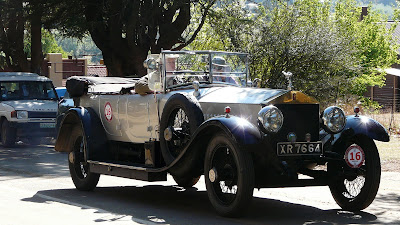
Petrol prices continue to fluctuate meaning that car travel is taking a larger portion out of each of (Y) OUR salaries.
Simply paying a bit more attention to your car can reduce these costs.
Simply paying a bit more attention to your car can reduce these costs.
Purchase your petrol when it's coolest outside such as in the early morning. Petrol becomes denser in cooler temperatures. Since petrol pumps only measure the volume - and not the density - you'll get better overall more for your money by purchasing petrol when it is cool outside rather than in the heat of the day. Religiously check your car's tyre pressure each month (make sure to purchase a good-quality dial-type gauge for yourself -- pencil-style gauges and the ones mounted on the air hose are unreliable according to surveys).
Tyres that are under-inflated reduce fuel efficiency by as much as 3% for 0.1 bar (2% per pound) they are under-inflated. Under-inflation also causes premature tyre wear giving your tires a shorter useful life. Also be careful not to over-inflate as this will also cause premature and most likely uneven wear of the tyres which means you’ll also need to replace them sooner,
Slow down and drive at the lawful speed limit. Cars use about 20% more petrol driving at 110 kilometres per hour than they do at 90 kilometres per hour.
Slow down and drive at the lawful speed limit. Cars use about 20% more petrol driving at 110 kilometres per hour than they do at 90 kilometres per hour.
Avoid using air-conditioning whenever possible. Air conditioning reduces fuel economy by 10% to 20% depending on your car’s engine size, etc. Use the air ventilation system instead,
Don't drive with open windows or sunroof when travelling at high speeds. Open windows on the highway can reduce fuel efficiency by 10%. It's much better to use the ventilation system,
Remove roof racks and other items that make your car less aerodynamic when they're not being used. Leaving them on only makes your car less fuel-efficient and costs you money.
Don't drive with open windows or sunroof when travelling at high speeds. Open windows on the highway can reduce fuel efficiency by 10%. It's much better to use the ventilation system,
Remove roof racks and other items that make your car less aerodynamic when they're not being used. Leaving them on only makes your car less fuel-efficient and costs you money.
There is no need to let your car idle. Even on cold mornings, cars don't need to idle more than 30 seconds. Newer cars are designed to be driven almost immediately and letting your car idle is a waste of gas. It's more efficient to turn off your car and turn it on again than to let it idle for more than 45 seconds while waiting. Remove all the excess weight from your car. Many people use their car boot and back seat as a storage space adding unneeded weight. This unnecessary weight reduces the car's fuel efficiency by about 1% for every 45 kg.
Use cruise control whenever you can, especially on highways. By maintaining a steady speed, you will improve your petrol consumption. The next time you are in the market for tires, consider radial tires. They can cut your fuel bill by 2-3%. Check your filters and catalytic converters regularly, especially if you drive a lot in areas with a lot of dirt roads and / or windy conditions. They should be kept clean. Dirty filters increase fuel consumption by as much as 10%.
Use premium multi-grade oils to save on your fuel consumption and be sure to change your oil regularly (refer to your car’s manufacturer’s instructions) taking the driving conditions (dirt roads, etc) into account. Fill your tyres with Nitrogen: Used in Formula 1, Military Aircraft and even the Space Shuttle, being inert (cannot catch fire or explode), it is the safest best possible tyre gas, Tyres inflated with nitrogen run between 10 and 15% cooler – cooler tyres means tyre life is extended by up to 20%, migrates slower than air through the tyre wall, so tyre pressure stays constant for longer, you can still fill up tyre with air as an air and nitrogen mix will not damage your tyres, cooler tyres are on average safer tyres.
Be aware what your car is costing you:
According to the Automobile Association of South Africa a petrol passenger car with a purchase price of between R 125,000 and R 150,000 travelling between 20,000 and 25,000km per year with an engine capacity between 1500 and 1800 at a fuel price of R 5.00 per litre costs on average R 2.33 per kilometre travelled. This means if you travel 30 kilometers (you’ll be surprised as to how quickly it adds up), that trip costs you R 70.00.
The above takes all factors into account such as maintenance, tyres, etc. The reason that you do not see the above spend on a daily basis is that some costs like the tyres, maintenance, etc are deferred costs, so plan and limit your trips to a practical minimum.
Ensure that your car’s insurance is up to date:
Investigate all insurance products that is offered in the market place such as “pay per kilometre” (if you are not driving a lot), “insurance for women drivers”, etc., it is important to insure your car to the correct value for your peace of mind, but to over-insure costs you money. Check your car’s retail value at least on a yearly basis and adjust your insurance value (insurance companies tend not to do this for you and you can understand why – bigger premiums means more money for them).For South African readers, go to www.standardbank.co.za and click on the vehicle finance link. Then choose car value estimator under Calculators. Follow the steps – it is easy to use.
No comments:
Post a Comment